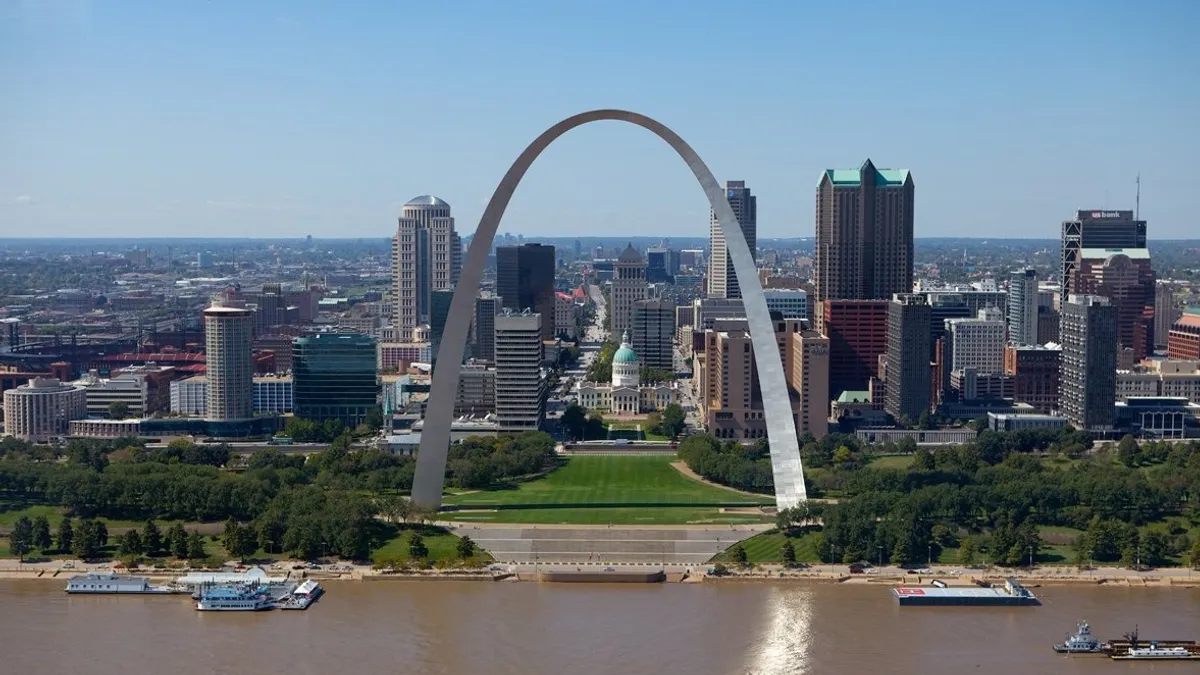Dive Brief:
-
Spire STL Pipeline on Monday requested federal regulators grant it a temporary certificate of public convenience and necessity while they sort out the fallout from a June ruling that vacated the pipeline's ability to operate.
-
The project has been operational since 2019 and marks a rare case of a federal court vacating a pipeline's certificate after it was already placed in service. Spire in its request cites the need to maintain reliable service for the pipeline's approximately 650,000 customers, and avoid curtailing heating power during the winter season in order to prevent putting "lives at risk."
-
But opponents of the pipeline caution the commission to be judicious in allowing the pipeline to continue operating, even temporarily. "Any temporary authorization request should be carefully scrutinized based on facts, not fear," said Natalie Karas, senior director and lead counsel at the Environmental Defense Fund's energy practice, in an emailed statement.
Dive Insight:
The U.S. Court of Appeals for the D.C. Circuit in June ruled that FERC should not have allowed the St. Louis, Missouri-based Spire STL Pipeline to move forward, finding the commission "ignored record evidence of self-dealing and failed to seriously and thoroughly conduct the interest-balancing required by its own Certificate Policy Statement" in its 2018 order.
The court's decision puts the project in an "unprecedented" state of limbo, according to legal experts: Once the D.C. Circuit issues its mandate, the pipeline will have to shut down, according to the company, unless FERC grants a temporary certificate of need.
The pipeline company in its Monday request said suspending the pipeline's operations will force distributor Spire Missouri to curtail natural gas service during the upcoming winter heating season. Customers in the region have made "irreversible" changes in response to the additional power from Spire's pipeline, according to the company, which further estimates the pipeline prevented 133,000 gas outages and saved customers $300 million during the February cold snap that caused millions of power outages across the lower Midwest and Texas.
Regional stakeholders including the local chamber of commerce, the Midwest Regional Office for the Laborers' International Union of North America and industrial customer Jost Chemical Co., echoed the pipeline company's call in comments filed Tuesday and Wednesday, citing similar concerns as Spire.
Spire Missouri created Spire STL as a way to access and distribute newly available resources in the Appalachian basin. Opponents of the pipeline pointed to this arrangement as an instance of self-dealing, and argued the developer did not adequately present a finding of necessity for the region. Spire in its initial application acknowledged additional capacity was not needed, and said the project was rather necessary to boost reliability in the region and reduce reliance on older infrastructure.
FERC approved the pipeline in 2018, a ruling EDF challenged. The D.C. Circuit ruled in favor of EDF last month, calling the commission's deliberations "ostrich-like" in their failure to probe further into "plausible evidence of self-dealing."
EDF's Karas says the problem is of Spire STL's "own making" and questions the company's assertion that service to customers would be harmed if the pipeline were to be shut down.
"No one has suggested that service to St. Louis customers should be compromised. At the same time, customers must be protected from costs and risks associated with unnecessary infrastructure," said Karas. If the commission does move forward with a temporary authorization, it should include a "firm" end-date, and ensure safeguards are in place to protect customers, landowners and anyone else impacted by the project, Karas added.















